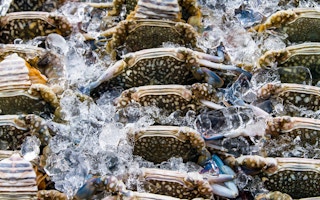A project that will give blue swimming crabs cultivated in Viet Nam an international accreditation is proceeding apace and well positioned to meet its objectives.
Project initiators said the aim is to boost exports and provide a sustainable means of livelihood for local fishers.
The swimming crab now accounts for the second biggest seafood export turnover in the country, with 2010 shipments valued at US$110 million.
Around 20,000 fishers in Kien Giang Province make a living by farming these crabs, but several problems have emerged in recent years, including environmental pollution and unstable income.
To help maintain long-term sustainability of this valuable natural resource, the Department of Agriculture and Rural Development (DARD) and the Viet Nam Association of Seafood Exporters and Producers’ (VASEP) Crab Council with support from the World Wide Fund for Nature (WWF-Viet Nam), have initiated a Fisheries Improvement Project (FIP) for blue swimming crabs in the province.
The project aims to obtain the Marine Stewardship Council (MSC) certification for the crabs that are cultivated in the province.
“All over the world, WWF has programmes to support sustainable development for fisheries with MSC certification. With the certification, local fishers will remain a seafood source and expand exports to EU, the U.S and Japan,” said Nguyen Thi Dieu Thuy, WWF Viet Nam’s co-ordinator for its seafood exploitation programme.
The decision to proceed towards MSC was taken in 2010 and the project began implementation from November 2012,
WWF-US and WWF Viet Nam have provided technical and financial support for the design of a FIP Action Plan which will take blue swimming crab towards MSC accreditation by 2016.
The actions required to get this are: stock assessment; the creation of sustainable management measures to protect the blue swimming crab from over-exploitation; strengthening data collection to feed into stock assessment and provide inputs for the fisheries management.
It also requires exploration of the fishery impacts on habitats and other species including among other things turtles; creation and functioning of a Crab Management Council (CMC); co-management among the fishermen; and strengthening of DARDs role as the principal fisheries manager.
A WWF statement said the dangers of inadequate fisheries management could result in over-exploitation, with an impact of other species. “It is therefore very important to explore ways of improving the current management system in order to preserve the long term livelihood for dependent fishing communities.
It said the objective of the project is to “maintain a sustainable volume of blue swimming crabs in Kien Giang province, facilitate a favorable environment for an effective management and participation amongst the stakeholders, strengthen enforcement through co-management.”
Tran Chi Vien, deputy director of DARD Kien Giang, said that is department would cooperate with VASEP Crab Council and WWF-VN to continue the FIP for blue swmming crab fisheries in Kien Giang.
“This is the first stage of project and we aim to build a 5-year action plan for the blue swimming crab,” Thuy added.










